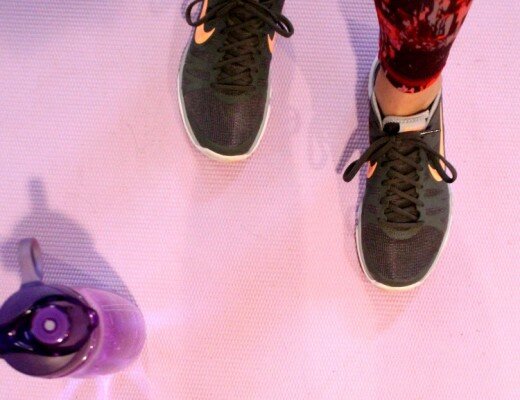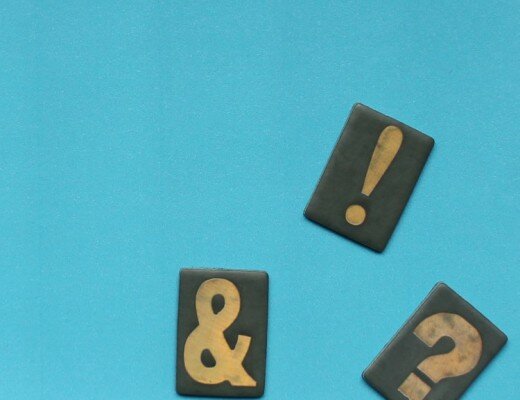As bloggers or online business owners, we hear the word “authentic” all the time. You have to be authentic if you want people to read what you have to say. You have to be authentic if you want people to follow you on social media. You have to be authentic if you want people to buy from you.
There are so many articles and blog posts out there giving pointers for how to be authentic when you’re running a business online. And while some of them may have good information, and I certainly think that authenticity has its benefits, overall I think it’s something that we worry about way, way too much.
What does authenticity mean?
I’m going to get this out of the way early: I’m not trying to tell you that you SHOULDN’T be authentic online. I simply think that, in most cases anyway, you probably already are.
The thing about authenticity and so many other concepts that we are told to value is that they’re more of a spectrum type of deal than strictly right/wrong.
If you want to be really super completely 100% authentic online, then you basically would be putting every single thought you have out there for the world to see. But that’s pretty much crazy. And no one does that. Some of us put more out there than others. And that’s totally fine. There’s no one right or wrong way to do this thing. We’re all just trying our best!
Are you being fake?
Then on the other end of the spectrum we have the person who’s completely “fake.” Now, if you’re totally falsifying information and misrepresenting yourself, or if you’re like catfishing people, then you are absolutely not being authentic. However, I think it’s safe to say that if you’re doing those things, you’re probably not interested in reading posts about the importance of authenticity or how to be authentic anyway. Just a guess.
Then there are the people who only post good, happy things and leave out all of the negatives, leaving an unrealistic view of what life is really like. You very well may fall into this category. I know I do most of the time. And there are lots of people out there who would call this “fake.” And I get it. Life is not all styled photography and gorgeous flat lays. But posting those things does not mean that you are fake.
I reject this idea that we all have to put out a super realistic view of what everyday life is like. I never just assume that someone’s Instagram feed represents their actual reality. Especially if they’re trying to run a business.
Now maybe every once in awhile you want to post something “real” where you share a messy corner of your home or a short rant about something that bothers you. That’s cool too! And it may even make you seem more authentic. But I don’t think any of us have some kind of responsibility to show the messy details of our lives online. That’s not authenticity. And you have every right to be intentional about what you post.
I’ll be super upfront with you that if I shared all of what’s actually going on with me, you’d just be looking at my messy desk all day long. There’s not a lot going on there. So instead, I just share the colorful images of breaks I take throughout the day to do creative stuff. It’s not lying. It’s not unauthentic. I do those things. I just don’t ALSO share the boring view of my desk that I pretty much stare at the rest of the day.
For me, this doesn’t count as being fake. Never in my captions do I say that I spend every second of the day surrounded by colorful art work and super fun craft projects. You may draw that conclusion if you just quickly scroll through my feed. But an Instagram feed does not a person make. And if you ask how I spend my days, I’m going to be totally honest about it. I just don’t feel the need to go out of my way to share those images. all. the. time.
Example: The picture at the top of this post is my reality. When I take pictures for this blog it pretty much means that I have a bunch of colorful papers and craft supplies spread all over my living room floor. Then I edit them down so you can only see the pretty colors and carefully styled items. Those pictures cut out a lot of things. But it doesn’t mean they’re fake. If I just share the complete mess I surround myself with all the time, it won’t really go with the message that I want to convey. It’s not fake. It’s just intentional.
How do you find a balance?
So basically, on one end of the spectrum we have the person who goes online to post absolutely every thought that enters their mind. And on the other end we have the person who builds a completely unrealistic persona and isn’t honest or upfront about anything.
Neither of these options are really great, especially for your young, creative biz owners or bloggers. So you’ve got to find some sort of sweet spot in the middle where you’re sharing a bit of your personality or your story, but not making yourself or your followers uncomfortable.
There’s no magic formula for doing this – sorry! But as long as you’re trying and being yourself and not lying – you’ve got this.
So how do you be authentic online?
I get it, you totally just skimmed through the article and want the tl;dr version. I do it all the time. Here ya go.
So basically what I’m saying is… if you’re not intentionally lying or misleading people online, you’re already being authentic. Congratulations! Maybe you will learn things or change your thinking throughout your business journey that will cause you to be authentic in different ways. And that’s great too. As long as you’re being yourself and trying, you’ve got this part down.
So what do you think? I’d love to hear your thoughts about authenticity and how it relates to running a business online?





